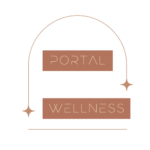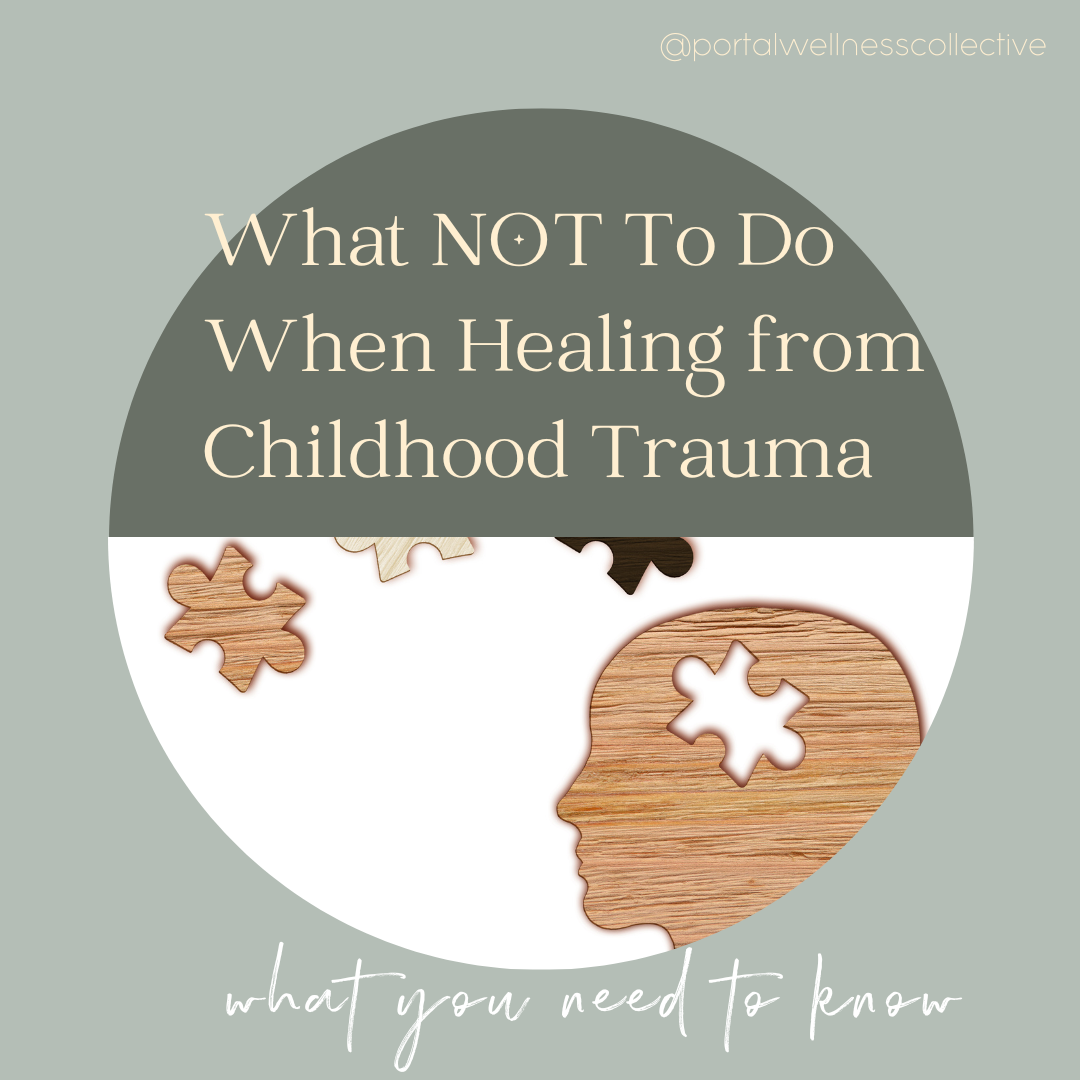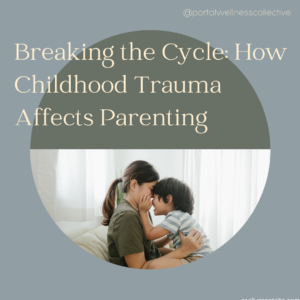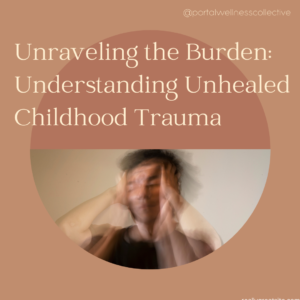Healing from childhood trauma can be a difficult and emotional journey, and it is important to be mindful of the things that may hinder your progress.
Read more about the impact of childhood trauma
here.
Here are some things to avoid when healing from childhood trauma:
Isolation: Avoiding social interactions and isolating yourself can make healing more difficult. It’s important to have a support system in place and to be open to talking about your experiences with trusted friends and family members. Finding
support groups and encouraging yourself to be social even when it can feel difficult can support your healing.
Self-blame: Childhood trauma is not your fault. Do not blame yourself for what has happened in the past. Instead, focus on taking responsibility for your healing and moving forward. Self blame is a common struggle for survivors of trauma. In therapy we work on self compassion as a foundational tool for trauma healing. Read more about self compassion
here.
Avoiding therapy: Healing from childhood trauma often requires professional help. Avoiding therapy or other forms of treatment can impede your progress and make it more difficult to cope with the effects of trauma. As you begin your healing journey avoidance often comes up, it is hard and painful to confront the past. However, the way out is often through, avoidance is a natural feeling to come up with trauma healing, remind yourself why you wanted to heal and encourage yourself that this is a process you are capable of going through.
Using substances to cope: While it may be tempting to use substances such as drugs or alcohol to cope with the emotional pain of trauma, it is not a healthy coping mechanism and can lead to addiction and other problems, exacerbating the impacts of trauma.
Suppressing emotions: Suppressing or denying your emotions will not make them go away. It’s important to allow yourself to feel a range of emotions and to talk about them with a therapist or support group. There are a lot of emotions that come up during trauma healing. In order to heal these emotions need to be allowed to processed and metabolized.
Avoiding triggers: Avoiding your triggers may seem like a good idea, but it can actually make them more powerful. It’s important to learn how to manage and cope with triggers, rather than avoiding them altogether. In trauma therapy we work to expand your capacity and skill set in order lessen the power your triggers have over you.
Moving too quickly: Healing from childhood trauma takes time. It’s important to be patient with yourself and to not push yourself too hard.
Not being open to different forms of therapy: One form of therapy may not be the best fit for everyone. Be open to trying different forms of therapy, including talk therapy, cognitive-behavioral therapy, and eye movement desensitization and reprocessing (EMDR) to see what works best for you.
Having unrealistic expectations. You are not a project to be fixed with a deadline. Healing trauma does not necessarily mean our lives become perfect or we live out fantasies of being free from pain or difficult experiences, what it does mean is that we have more capacity to deal with ourselves and others in healthy ways that lead to a more fulfilling life overall.
In summary, when trying to heal from childhood trauma, it’s important to avoid isolation, self-blame, avoiding therapy, using substances to cope, suppressing emotions, avoiding triggers, moving too quickly and not being open to different forms of therapy. Remember that healing is a process and it takes time. It’s important to be patient with yourself, and to seek help from a therapist or support group.
If you would like to start your trauma healing journey connect with us for a free 15 min consultation. You don’t have to do this alone.









